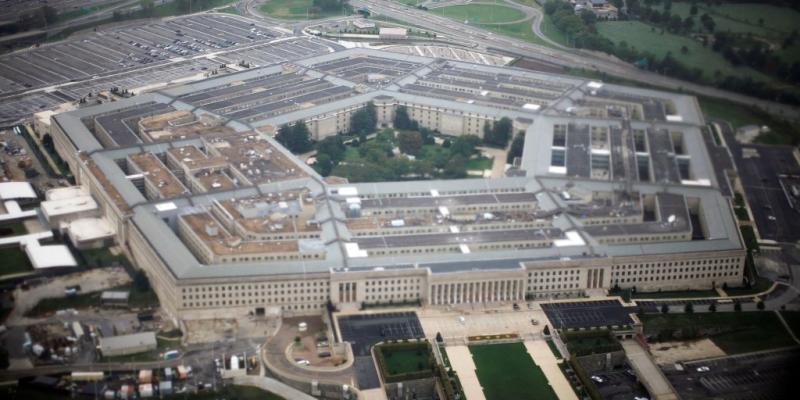U.S. launches airstrikes against Iran-backed militias in Iraq, Syria
Category: News & Politics
Via: perrie-halpern • 3 years ago • 5 commentsBy: Tim Stelloh and Courtney Kube



U.S. military forces carried out what a Pentagon official called "defensive" airstrikes in Iraq and Syria on Sunday against Iran-backed militia groups that were behind drone attacks on American personnel.
Pentagon Press Secretary John Kirby said in a statement that the airstrikes targeted operational and weapons storage facilities at two locations in Syria and one in Iraq. The facilities were used by at least two militias, Kata'ib Hezbollah and Kata'ib Sayyid al-Shuhada, Kirby said.
Jessica McNulty, a Pentagon spokeswoman, said each strike hit its intended target. But the operation's effect remained unclear.
Kirby said that President Joe Biden, who authorized the strikes, "directed further military action to disrupt and deter" attacks on U.S. facilities and personnel in Iraq. There have been five drone attacks since April, McNulty said. She added that rocket strikes are "ongoing."
"We are in Iraq at the invitation of the Government of Iraq for the sole purpose of assisting the Iraqi Security Forces in their efforts to defeat ISIS," Kirby said. "The United States took necessary, appropriate, and deliberate action designed to limit the risk of escalation - but also to send a clear and unambiguous deterrent message."
The Syrian state news agency, SANA, reported that a child was injured and three other civilians were injured, but it has not been independently confirmed by NBC News.
The airstrikes come as the Biden administration considers lifting sanctions on Iran in an effort to revive the 2015 nuclear deal, which was negotiated under the Obama administration and sought to blunt Iran's uranium enrichment capacity.
Former President Donald Trump pulled the United States out of the deal three years ago, arguing it was slanted toward Iran. The Trump administration also imposed damaging sanctions on the country.
U.S. forces carried out airstrikes earlier this year against the same Iran-backed militias that the Pentagon said were behind a rocket attack in northern Iraq. The attack killed a Filipino contractor working with an American-led military coalition and injured six people, including a Louisiana National Guard soldier and four American contractors.




The United States invaded Afghanistan in October 2001. Wikipedia:
Those "public aims" were accomplished within six weeks. Once those objectives were attained, Coalition forces could / should have left, with a clear announcement that any return of al Qaeda would be crushed from the air or on the ground, as needed... but that Coalition forces would never be stationed in the country.
Imagine the difference, now, twenty years later.
Yesterday's airstrikes are what we should have been doing for all those twenty years.
Yesterday's airstrikes are what we should have been doing for all those twenty years.
No American troops or contractors should still be there.
No amount of air strikes will ever make a bit of difference in the ongoing attempts to remove the Taliban or Al-Qaeda from power. Even the Russians were eventually smart enough to vacate that shithole region
I have no problem with ground-pounders going in to destroy identified targets... as long as the mission is tightly limited in time. In fact, I think that raids, up to battalion size, should be a constant mission for the Army and the Marines.
With an absolute rule: "Go in, do the job or fail, GET OUT!" Some missions will fail, but that must not be an excuse for staying longer than the plan called for. Avoid quagmire!
The Taliban (or whoever) would be more tractable if they didn't know when or where they would be hit... but knowing that they would indeed be hit.
Before everyone gets carried away, despite some similarities Iraq and Syria are not Afghanistan.
Our policy should always be, mess with American personnel, you might reap the whirlwind.
Kudos to Biden or whoever really made this decision.